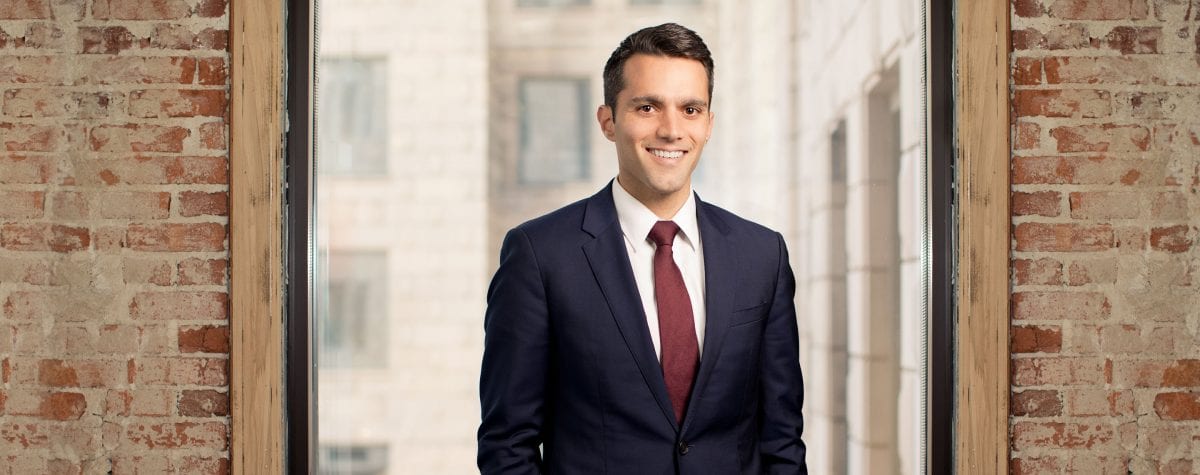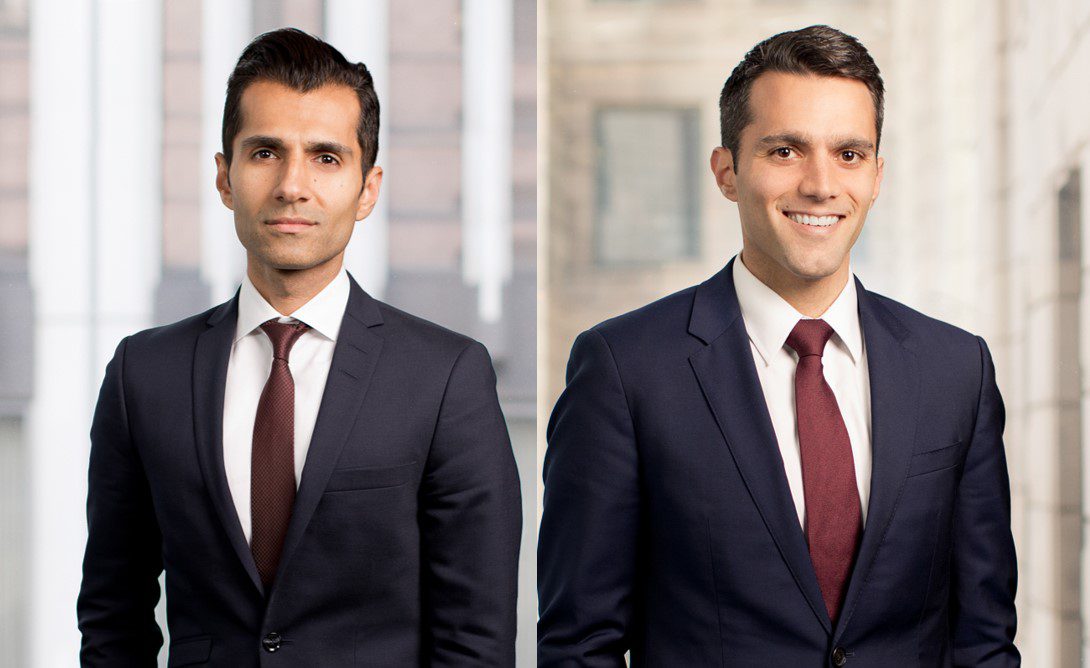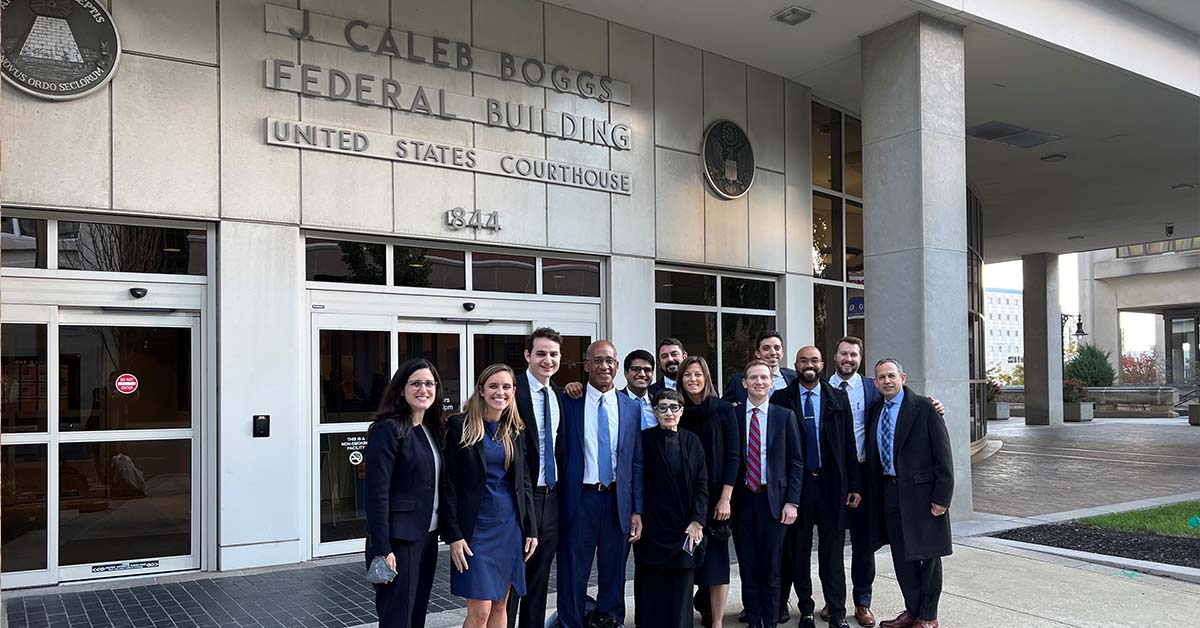Endo has taken a bruising recently in major discovery fights that have sometimes overshadowed its actual trial defense. But all four companies can count Monday’s ruling by Orange County Superior Court Judge Peter J. Wilson as a major entry in the win column.
The plaintiffs, three counties and one city, claimed the companies misled the public and doctors about the safety of prescription opioids, needlessly addicting patients and ultimately burdening public systems. They were not immediately available for comment.
With other opioid trials in West Virginia, New York and Ohio awaiting decisions, and more trials set for next year, lead Endo trial lawyers John Hueston and Moez Kaba of Hueston Hennigan LLP spoke with Law360 about how they helped secure the California win. This interview has been edited for length and clarity.
What was your strategy going into the trial?
Kaba: Before the trial, too much was getting lost in the story of the opioid epidemic, and there wasn’t enough focus on the actual burden to prove the claim. We were very focused on getting the truth out — frankly, in large part through the people’s own witnesses.
What were some of the most important or key cross-examinations during the plaintiffs’ case, from your perspective?
Hueston: One was Stanford professor [Anna] Lembke. Dr. Lembke was presented as the lead voice by the plaintiffs for their case trying to establish misstatements that drove the crisis in California.
And through methodical undermining, through Moez’s cross-examination, of each of these alleged statements, showing that in many cases the statements she said we made were not made by us or that she simply construed the statement to be something else, I think it was a true turning point.
Can you give an example of one of those statements?
Kaba: Sure. One of the things that Dr. Lembke claimed, for example, was that it was false or misleading to suggest that opioids can improve the function of people who take them. And we had her admit very clearly, very plainly, that not just the [U.S. Food and Drug Administration] but the state of California itself in its own laws acknowledges that opioid medications when properly prescribed do, in fact, improve function.
The judge would often stop the trial and hold long discussions about evidence and give hints about what he wanted to see or what was working or not working. Were there specific times when those discussions helped you figure out what directions to go in?
Hueston: Our overall strategy from the start was to try to move the focus of the trial beyond the question of “Is there an opioid crisis,” which everyone largely conceded from the get-go, and to focus in singularly on “Where are the false statements?”
There was risk with that approach because we weren’t sure coming into the trial that the judge agreed with the legal theory that proof of false statements had to undergird effectively all the claims of the case. And when the judge began challenging the plaintiffs on that very point and suggesting that, in fact, that was likely determinative, that I think helped confirm and further focus our presentations.
By the final closing argument, we had reduced the plaintiffs’ case to a mere 11 [Endo] documents with alleged false statements, out of millions of pages produced. So I think his discussion and focus of the parties on that aspect of the law was very helpful — frankly, to both sides, although I think the plaintiffs largely brushed off [that evidence] to their detriment.
Kaba: It’s an extraordinarily methodical order. He goes through alleged statement after alleged statement and reaches the findings that these are not false statements.
There’s another part of his order where he says that there’s no causation, which was another big part of our case. In the examination that John did of our economist, we proved up that there is no causation — even though it wasn’t our burden in the first place. It was the people’s burden to prove up causation. But we did it anyway through Dr. [Justin] McCrary, a professor from Columbia Law School.
But we did hear during the trial at times that there isn’t a massive crisis in these four jurisdictions, like there is elsewhere in the country. That argument hasn’t been used in other major opioid trials. Did it contribute to the success you had here?
Hueston: We certainly wanted to make sure that a case about the opioid epidemic in California actually related to California. And what we wanted to do was to anticipate and blunt the attack from plaintiffs that California is like Appalachia and Tennessee, or some of the other notorious hot spots. And so we did contextualize that for the judge.
But then we quickly moved beyond that. Because, again, by lingering too long on that issue we were concerned that would play into the hands of the plaintiffs, who wanted to really advance a simplistic case of stating, “Your Honor, all you need to find is an opioid epidemic or crisis and then find that the companies knew of the risk of opioids and simply promoted that, and that is sufficient to find a nuisance.” And of course, as the judge pushed back on that throughout the trial and ultimately found in the order, that was a legally insufficient framework for their nuisance theory.
Kaba: The notion of the opioid crisis was one that actually wasn’t really in dispute at all during the trial. The dispute in the trial was, in these jurisdictions, is this a crisis of prescription opioid medications? And you saw during the trial, repeatedly, us making the point that what has led to more emergency department visits, more bad outcomes, has been the use of heroin, has been the use of fentanyl, not the use of prescription opioids. There is a real problem of drug abuse, but that’s not the question for this trial.
Was there a moment where you felt the tide turning? The judge telegraphed a bit at arguments on Sept. 30 how he was leaning, but before that, was there a moment where you felt as though things were on your side?
Kaba: Oh, no. I think we went into trial every day and we thought, “We’ve got to go out there, we have to be the best lawyers in the room, we have to put forward the best evidence.” John has this saying, which is: “We need to go out, and we need to win every day.” And that was our attitude for three months.
Hueston: You’ll recall at the end of the plaintiffs’ case the judge invited argument. And we all made presentations, and we were hopeful that the judge would tip his hand. At one point he said, “I’m going to come back in a couple of hours,” and we thought that he was going to render some sort of substantive decision or give guidance.
But he expressly declined to do so, which caused us some angst and uncertainty. But it’s a credit to him as a judge; I think he wanted to remain fair, balanced and beyond reproach as the adjudicator while the evidence was still coming in.
When the decision came down Monday, was there anything the judge said that specifically echoed an argument you had made at trial?
Kaba: At one point the judge quotes specifically an admission that I got from the very first witness at trial, which was the people’s historian, Dr. [David] Herzberg, who admitted on the stand — the very first person to testify for the people — that there are, even according to him, any number of potential causes for the opioid crisis. And the judge was given no basis to figure out, well, who caused what, where, when, how and why? And he cites that in his order.
How does it feel to not just get a win, but get a win for Endo, which has been defending itself in other opioid cases on claims that it withheld critical evidence?
Hueston: We pride ourselves in taking on the toughest cases from clients who are literally in a bet-the-company situation. And nothing could better define that now than, I think, for Endo — and, frankly, for a number of the other pharmaceutical manufacturers.
We worked very hard with the Endo in-house team, and they were really part of the strategy and the work on this case as well, to be able to push aside the noise and the politics and the hype around trying to find liability for manufacturers and to winnow it down to a focused case on the facts. To be able to do that and to land that for a deserving client is really all that we could have asked for and what you dream about in terms of the firm’s mission.
Kaba: Endo is not actually selling its Opana products anymore; it stopped marketing and stopped selling them, and this is a company that has manufactured and sold and developed some really extraordinary other pharmaceutical medications. It is important that the company not be defined by its status as a defendant in opioid litigation. It’s done a lot of good in terms of medical development and progress.
Is there anything else that stood out in the trial?
Kaba: I do think it’s worth mentioning that the trial and the work that was put into it truly was a team effort for us — not just, obviously, with our client, but also with the other partners and associates that worked with us who really were extraordinarily committed and working hard every day. It is hard in the middle of a pandemic to show up to the office seven days a week for three months.
Hueston: There is another item that we haven’t fully addressed. It was critical to our strategy to ensure that the voices that are in support of proper pain management were heard, that pain management doctors who could help describe the life crises of people who simply have inadequate treatment of pain and the legislative processes behind that to protect that was key to balancing the narrative. And that approach succeeded, and it’s shown in the judge’s opinion as he sets forth not only the understanding of that balance by the FDA and the federal government but how that is enshrined specifically in California in, for instance, the Patients’ Bill of Rights. We thought it was very important to make sure that that sort of emotional arc, which is typically possessed by the plaintiff in these sorts of cases, was balanced here by the defense.
Looking ahead, are there more opioid trials in your future?
Hueston: Well, we have another case in federal court set in April in San Francisco, and then there are yet other cases that we have been invited to try. And we’re focused on fitting that within our trial schedule for 2022.
–Additional reporting by Jeff Overley and Emily Field. Editing by Orlando Lorenzo.
How Hueston Hennigan Notched A Landmark Opioid Trial Win
The Hueston Hennigan team was led by John Hueston and Moez Kaba, and included Marshall Camp, Mike Purpura, Padraic Foran, Tom King, Samantha Schnier, Michael Todisco, David Sarfati, Josh Burk, Karen Ding, and Stephen Mayer.




